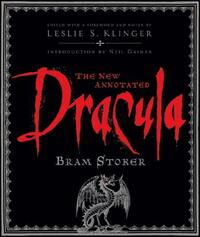Take a photo of a barcode or cover
Not entirely sure how to review this - listened to the BBC Radio Ulster version, and missed bits of the story while revelling in Michael Fassbender's voice, and this was an abridged version. Entertaining.
adventurous
dark
sad
tense
medium-paced
Plot or Character Driven:
Plot
Strong character development:
Yes
Loveable characters:
Yes
Diverse cast of characters:
No
Flaws of characters a main focus:
No
3 Stars.
The vibes:
- a classic
- Vampires
My thoughts:
It’s really hard for me to rate classics because I truly don’t feel intelligent enough in the literary sense for them. I don’t fully grasp everything that’s happening, so this is likely more of a reflection of myself than the book. I’m confident there are deeper symbolisms at play here that just went above my head, and that’s ok. I’m ok not loving a classic.
I’m glad I tried this one because it’s been on my radar forever. I enjoyed the spooky vibes, but ultimately felt like it was overly drawn out in some portions. With the book written out in journal entry form, we follow a lot of characters. I found it hard to fully differentiate the men from each other because they behaved very similarly. A lot of the process felt repetitive which led to quite a slow-paced journey for me.
3.5 stars
I took a leisurely 2 1/2 months to finish this classic. First of all, it is not something I would call scary or something to be placed in the horror genre that our generation is used to. When I first started reading it, I was careful not to read any at night in case it might cause nightmares. But this was unnecessary. There were only a couple of mildly scary moments in the book for me. The most memorable was when Dracula tells Mina that she is “flesh of my flesh, blood of my blood”. That gave me chills of disgust. But overall, the format of this novel gives the reader a distance from the events by writing the entire novel through journals, memos, newspaper clippings and telegrams. This, I think, gives the reader the option to stay distanced from the narrative, or to immerse oneself when there is dialogue and imagine it to be happening in the present moment. (Which it never is, since everything has already happened and been written about.) So one’s level of immersion could be a personal choice.
The story was interesting most of the time and I was able to suspend reality enough to follow the events and believe the rationale behind the supernatural phenomena due to Stoker’s detailed writing and descriptions. There are errors in the story as was pointed out in the annotated version I was reading along with the audio book, but for me they were minor and easily overlooked.
Van Helsing was one of my favorite characters. I enjoyed his vigor, humor and tenacity. Between this and Frankenstein, I am gathering that in the 1800’s, ideal heroes and heroines are perfect because Mina and Lucy and all the male characters never seem to do anything morally wrong. They make mistakes, but they are always portrayed as perfect and pure and wonderful. I guess this was the ideal and expectation of the 19th century European man and woman but it is so unnatural to me. I realize the stoicism of the day dictated one not share one’s feelings openly often, but the constant lavishing of compliments upon each other (among the characters) gets tiring at times.
The madman character was very entertaining. His fly and spider (and so on) collections were gross but provided very interesting studies on the cycle of life and the morality of it all.
I do wish there was not so much preparation and waiting. It would be a much more exciting book if it was just the action scenes. I wonder if the abridged version would be better than the unabridged in this case.
I enjoyed this work much more than Frankenstein. I would recommend this one over the former for a solid read in the classic “horror” novel. Although I, personally, wasn’t scared or horrified by either of them.
I took a leisurely 2 1/2 months to finish this classic. First of all, it is not something I would call scary or something to be placed in the horror genre that our generation is used to. When I first started reading it, I was careful not to read any at night in case it might cause nightmares. But this was unnecessary. There were only a couple of mildly scary moments in the book for me. The most memorable was when Dracula tells Mina that she is “flesh of my flesh, blood of my blood”. That gave me chills of disgust. But overall, the format of this novel gives the reader a distance from the events by writing the entire novel through journals, memos, newspaper clippings and telegrams. This, I think, gives the reader the option to stay distanced from the narrative, or to immerse oneself when there is dialogue and imagine it to be happening in the present moment. (Which it never is, since everything has already happened and been written about.) So one’s level of immersion could be a personal choice.
The story was interesting most of the time and I was able to suspend reality enough to follow the events and believe the rationale behind the supernatural phenomena due to Stoker’s detailed writing and descriptions. There are errors in the story as was pointed out in the annotated version I was reading along with the audio book, but for me they were minor and easily overlooked.
Van Helsing was one of my favorite characters. I enjoyed his vigor, humor and tenacity. Between this and Frankenstein, I am gathering that in the 1800’s, ideal heroes and heroines are perfect because Mina and Lucy and all the male characters never seem to do anything morally wrong. They make mistakes, but they are always portrayed as perfect and pure and wonderful. I guess this was the ideal and expectation of the 19th century European man and woman but it is so unnatural to me. I realize the stoicism of the day dictated one not share one’s feelings openly often, but the constant lavishing of compliments upon each other (among the characters) gets tiring at times.
The madman character was very entertaining. His fly and spider (and so on) collections were gross but provided very interesting studies on the cycle of life and the morality of it all.
I do wish there was not so much preparation and waiting. It would be a much more exciting book if it was just the action scenes. I wonder if the abridged version would be better than the unabridged in this case.
I enjoyed this work much more than Frankenstein. I would recommend this one over the former for a solid read in the classic “horror” novel. Although I, personally, wasn’t scared or horrified by either of them.
Listened to the Michael Fassbender audio book with Ethel Cain’s ‘Perverts’ playing in the background and ugggghhh the tone, talk about immersion. There is something to be said about the magic of a combination of an epistolary narrative and the audiobook format, the narrator speaking directly to you about their experiences, especially when it’s horror (Shout out everything Lovecraft has ever written). A deeply underrated experience that I will always highly recommend. The book itself was grand and I’m very surprised by just how much Robert Egger’s Nosferatu borrows from it (I know Nosferatu is a knock off of Dracula, but I’m still surprised just how one to one it was). Def Recommend.
adventurous
challenging
dark
mysterious
slow-paced
Plot or Character Driven:
Plot
Strong character development:
No
Loveable characters:
Yes
Diverse cast of characters:
No
Flaws of characters a main focus:
No
This was the book that made me realize gothic novels aren't for me. I liked the plot and especially the characters but the execution? No, thank you. It took me two tries and the audiobook to get through this.
adventurous
dark
mysterious
slow-paced
Plot or Character Driven:
Plot
Strong character development:
No
Loveable characters:
No
Diverse cast of characters:
No
Flaws of characters a main focus:
Yes
medium-paced
I love this book so much it’s like actually my new favorite book. Sorry Anna Karenina, but Mina Harker has taken your place as my favorite woman of 19th century literature. She is just so slay, not to mention the rest of the story. At literally no point did there seem to be a lull in the story, Stoker does an excellent job at keeping the reader on the edge of their seat, and I think his decision to tell the novel through letters, diary entries, etc. was the perfect way to let the reader get very intimate with the mindsets of each of the characters.



